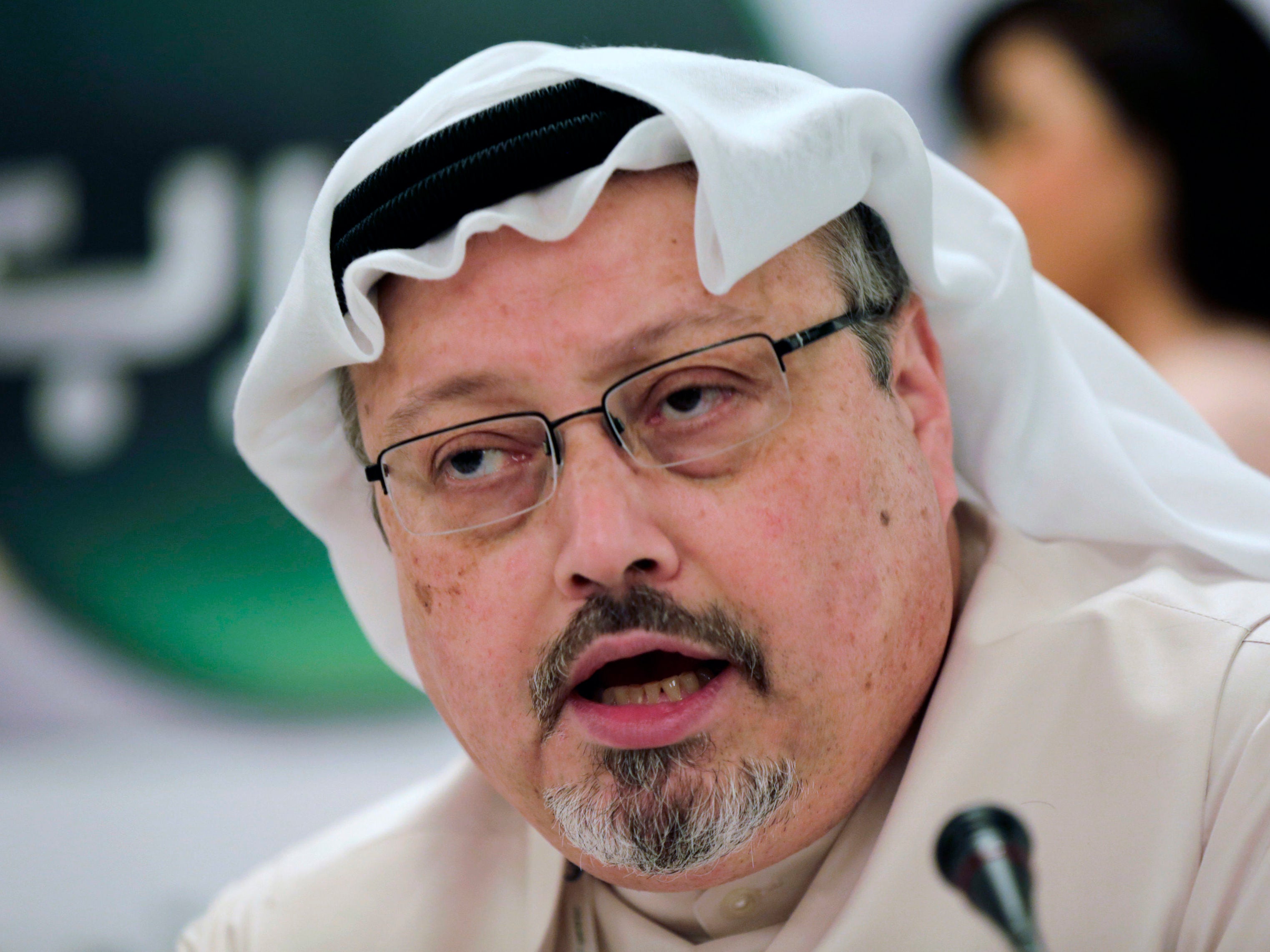
A court in Saudi Arabia has sentenced five people to death over the killing of Washington Post columnist Jamal Khashoggi.
The writer (pictured) was murdered in the Saudi consulate in Istanbul, Turkey, last year by a team of Saudi agents.
Another three people were sentenced to prison for a combined 24 years, according to a statement read by the attorney general’s office on Saudi state TV.
No individual breakdown for the sentencing was given.
In total, 11 people were on trial in Saudi Arabia for the killing, but the government has not made their names public.
All can appeal against the preliminary verdicts.
Saudi crown prince Mohammed bin Salman drew international condemnation over the killing because several Saudi agents involved worked directly for him.
The kingdom denies that Prince Mohammed had any involvement or knowledge of the operation.
State TV also reported the Saudi attorney general’s investigation showed that the crown prince’s former top adviser, Saud al-Qahtani, had no proven involvement in the killing.
Al-Qahtani, however, has been sanctioned by the United States for his alleged role in the operation.
The court also ruled that the Saudi consul-general in Istanbul at the time, Mohammed al-Otaibi, was not guilty.
He was released from prison after the verdicts were announced, according to state TV.
After holding nine sessions, the trial concluded that there was no previous intent by those found guilty to murder, according to state TV.
The trials of the accused were carried out in near-total secrecy, although a handful of diplomats, including from Turkey, as well as members of Khashoggi‘s family were allowed to attend the sessions.
The verdicts were read by Shaalan al-Shaalan, a spokesperson from the attorney general’s office, and broadcast on state TV.
No names were given for those found guilty. The attorney general’s office also said it is looking into the verdicts, which were issued by Riyadh’s criminal court, to see whether to move ahead in the appellate court.
Khashoggi had walked into his country’s consulate in Istanbul in October 2018 to collect documents that would allow him to wed his Turkish fiancee, Hatice Cengiz, who waited for him outside.
He never walked out and his body was never found.
Agnes Callamard, a UN special rapporteur who authored an inquiry into Khashoggi‘s killing, later said the search for justice must not be left to the Saudi judicial system, which is “so vulnerable to political interference”.
Callamard reacted to the verdicts announced from Riyadh by tweeting that “the travesty of investigation, prosecution and justice continues” in Saudi Arabia.
US president Donald Trump condemned the killing, and his administration sanctioned 17 Saudis suspected of being involved, but not the crown prince.
Trump, however, has steadfastly resisted calls by members of his own party for a tougher response and has defended maintaining good relations with Saudi Arabia, framing its importance as a major buyer of US military equipment and weapons and saying this creates American jobs.
In Turkey, Yasin Aktay, a member of Turkey’s ruling party and a friend of Khashoggi, criticised the verdict.
“The prosecutor sentenced five hitmen to death but did not touch those who were behind the five,” Aktay told The Associated Press.
“These are people who cannot even use the bathroom without the permission of their superiors.”
“The verdict neither meets the expectations of the public conscience nor the feeling of justice,” he said.
Picture: AP Photo/Hasan Jamali/File
Email pged@pressgazette.co.uk to point out mistakes, provide story tips or send in a letter for publication on our "Letters Page" blog
